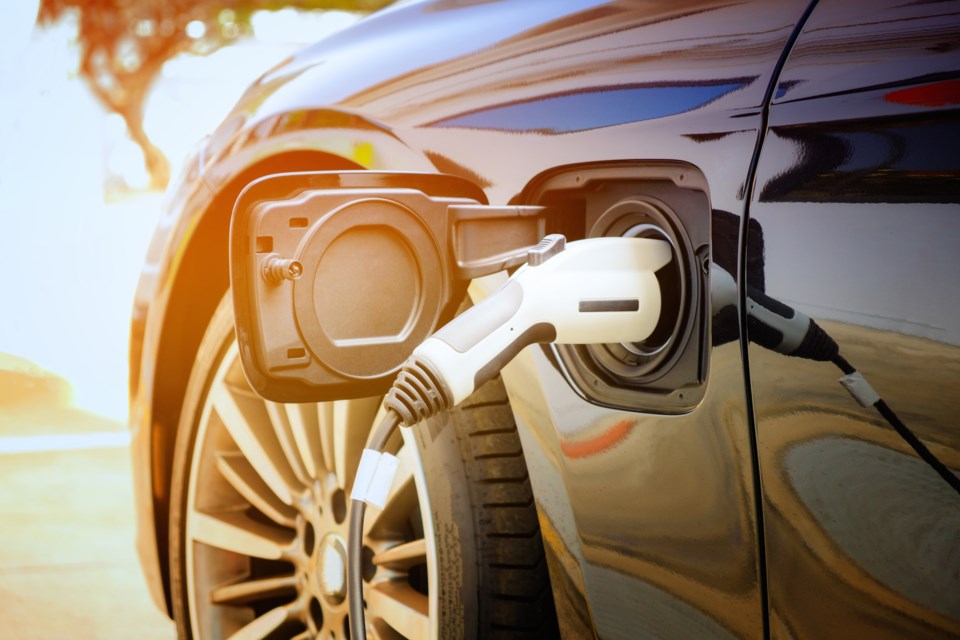Eight new electric vehicle charging stations are on their way to city facilities in the new year.
Two of the new charging stations – at Orillia City Centre – will be available for public use, while the remaining six stations are slated for use by the city’s corporate fleet at the municipal operations centre and wastewater treatment centre.
City politicians approved the idea at last week’s council meeting, as well as the purchase of “fleet optimization software” to track fleet performance, enhance route planning, reduce fuel costs, and more.
The bill for the charging stations and software comes in at just over $72,000, with a federal grant offsetting costs for the charging stations by $45,000.
Although the plan was brought forward with the city’s Climate Change Action Plan in mind, Coun. Whitney Smith questioned whether installing more charging stations in the city is justified.
“I never see anybody using the ones that are here on the city property, let alone anywhere else in town. Where's the justification for this?” asked the Ward 1 councillor.
City staff, however, noted usage of the stations has been growing over time, with 321 charging sessions at Orillia City Centre so far this year and roughly 500 at the Orillia Recreation Centre.
“I think it's rather quiet in the daytime, business hours, we see a lot of use in the evenings and also on the weekends in the lot here, and then at the rec centre where the other stations are, we had almost 500 charging sessions so far this year,” said Tyler Hunt, manager of facilities capital. “Although we would like to see them used more, it is increasing over time.”
Smith shot back that she’s heard electric vehicles are regularly returned to dealerships.
“I was at a dealership the other day just looking at some vehicles, and the gentleman was talking about the amount of electric vehicles that are being returned because of range anxiety, and all the different issues, that people just aren't sticking with them like they thought they would,” Smith said. “Is this an investment that makes sense, given that that is a trend that's taking place?”
Hunt said research shows lowered maintenance and operating costs for electric vehicles, and mentioned the city fleet will likely transition with “light” vehicles first.
Currently, the city possesses four electric vehicles – a fire department vehicle, an environmental monitoring vehicle, and two ice resurfacers at Rotary Place – with an additional three electric vehicles on order.
“There's much less widgets and parts in an electric vehicle, so you look at the time that our mechanics at the (city) are putting into our traditional vehicles, that would be significantly less over time,” Hunt said.
“But it is a very calculated decision – it's certainly not something we're wanting to rush into for medium or heavy duty vehicles. We're likely going to start with the light vehicles.”
Currently, vehicles are charged for the entire time they’re plugged in, a practice Coun. Janet-Lynne Durnford questioned given relatively low demand so far.
“Currently they are set up to charge for the entire time that vehicles are plugged in, not for the time that it takes to actually charge the vehicle, and I think that presupposes a demand that we do not have at this point,” she said. “I would suggest that if we are charging instead for the actual time spent charging the vehicle, we may see more uptake on that charger.”
City staff responded there is a utilization penalty once vehicles are nearly charged to discourage “people from hogging the space.”
